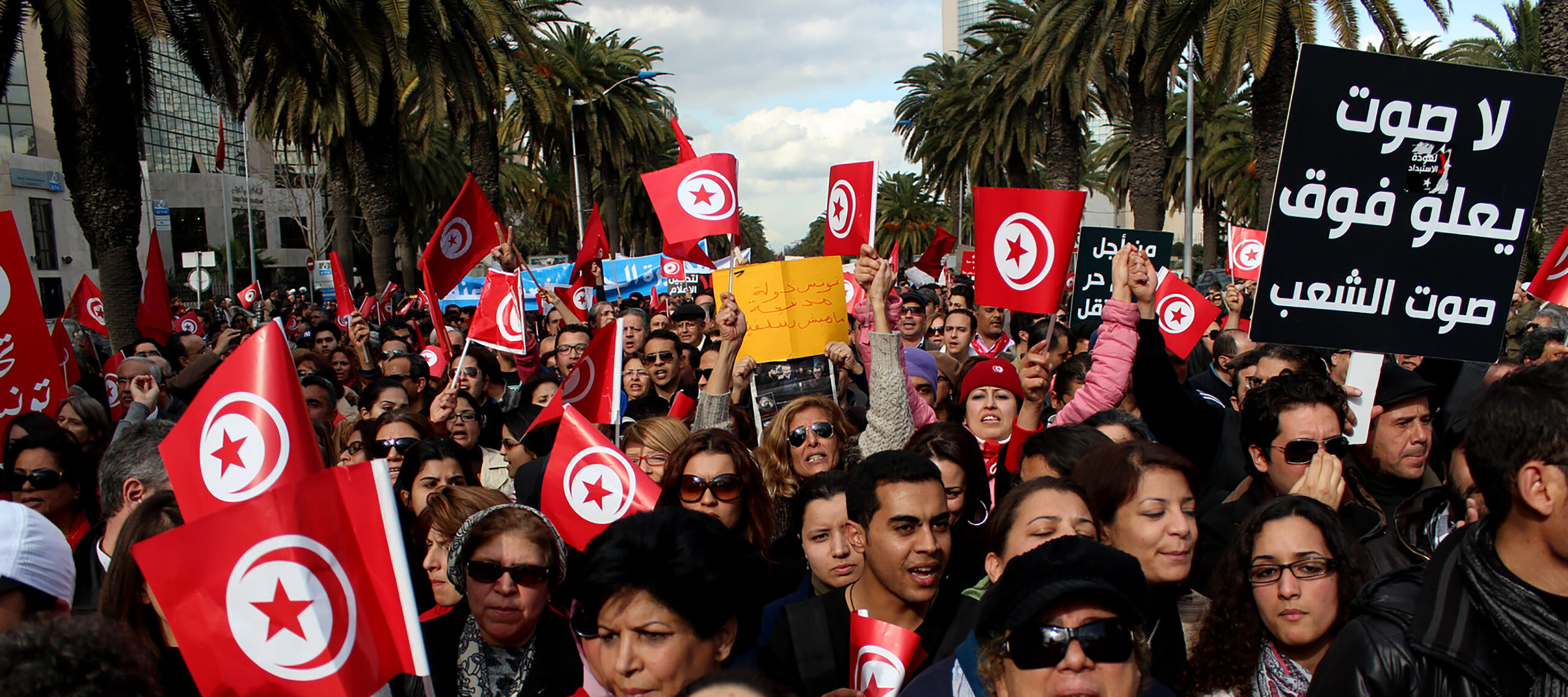Black Tunisian women have been at the forefront of the fight for human rights in the country against Kais Saied’s antidemocratic policies
Growing up during the regime of Ben Ali, the dictator who held power in Tunisia between 1987 and 2011, Aicha never understood why her upper-class family was so politically involved. As part of Tunisia’s Black minority population, which accounts for 10 to 15 per cent of the country’s population, they cared passionately about changing things in their country and achieving freedom.
“Everything was okay in my life, so I didn’t understand why,” she says. “I’m happy. I have everything I need,” she remembers thinking.
But when her mother sent her to Denmark for a holiday at 17, everything changed.
Unlike in Ben Ali’s Tunisia, the democratic Scandinavian country didn’t subject the political opposition to imprisonment and torture. There, human rights were a reality. Freedom of speech, movement, and association were permitted.
“Now I get my parents! I saw the gap,” she recalls.
After coming back from her trip, Aicha started getting involved in activism. She has not stopped since and has become a core figure in the fight against racism, inequality, and gender discrimination in Tunisia.
But she is not alone in this. Black women have been at the forefront of the pro-democracy movement in the country since 2011, when the Arab Spring brought down Ben Ali’s authoritarian regime.
These activists spent the last decade bringing issues of racism, gender, sexuality, inequality, and migration into the public consciousness. They carved a new space for Black women in the political sphere, but such space is rapidly shrinking as Tunisia faces a new wave of repression and racism under President Kais Saied.
“We’ve never ever thought that we would experience a backlash in terms of our rights, our achievements,” says Aicha. “It’s something that we have been building and building and building and then everything vanished!”
Aicha’s name is a pseudonym. She has asked to have her identity concealed because her safety and that of her fellow activists is at risk under re-emergent repressive circumstances. Many of them have already been arrested.
Tunisia’s return to authoritarianism started in 2021, when President Saied staged a coup, dissolving the parliament and arresting prominent political figures. He proceeded to heavily limit civic space and continues to do so with increasing force. Elections are set to take place in the country this fall, but whether they will unfold lawfully and democratically is questioned by activists and scholars.
“The people who nowadays oppose Saied’s regime do it with immense courage because the consequences for them and their families are enormous,” says Guendalina Simoncini, a political science researcher at Scuola Normale Superiore in Pisa, Italy. “Women have it worse,” she adds, as “repression is never indifferent to gender”.
The 2021 coup was met with disbelief. After the Arab Spring, a series of anti-government protests, uprisings, and armed rebellions that began in Tunisia and spread across the Arab world in the early 2010s, Tunisia was considered the only country that had successfully transitioned into a democracy.
Tunisia’s path toward democracy in the past decade had allowed Black women’s activism to develop and challenge racism and gender inequality in the country.
“The Tunisian environment is deeply racist, with structural problems around the visibility and participation of Black Tunisian people,” says Simoncini. She further explains that Black women face an added layer of oppression because of their gender.
“Women obviously pay an even higher price to take up space in public and talk about their marginalised experience,” she continues.
After 2011, they worked with other branches of Tunisian civil society to draft the new constitution, backing Black Tunisians and the rights of migrants from other African nations. They bolstered the need for their full social, economic, and political participation. In 2018, they successfully campaigned for the first anti-racial discrimination law in the Arab world.

However, achievements in racial justice are at risk under Saied. In February 2023, the president made a speech supporting the Great Replacement theory, a conspiracy theory popular in the West which states that native-born populations are being deliberately replaced by immigrants from non-white countries.
“His speech was a social trauma,” says Simoncini. She highlights the speech’s link to the global rise of populism and the Tunisian economic crisis, as well as the violence that ensued from his stance: “The impact was huge and is ongoing.”
“The president gave [racists] this legitimacy,” explains Aicha. “He gave them the power to go from verbal violence to physical violence. It was like just saying go and kill people!”
In May, the number of arrests of political activists, including several prominent Black women, increased. Tunisians however are taking back to the streets to protest and preserve the civic space they fought for over the past decade.
“One of the few things that we kept from the revolution is that we are a very, very committed, informed, and strong civil society,” says Aicha. “We lost everything that we built during these ten years, but something that we maintain until now is this community that we created.”
As political repression intensifies ahead of the next election, it remains unclear whether the legacy of these activists will be enough to protect what is left of Tunisia’s feeble democracy.
Feature image: Protest in Tunisia. Photo credit: Gwenael Plaser. Event organised by Mnemnty, the most relevant anti-racism organisation in Tunisia. Photo credit: Huda1977.

